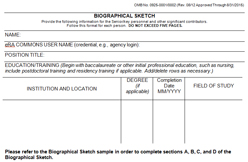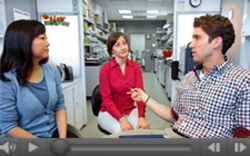As I wrote in a previous post on the Pharmacogenomics Research Network (PGRN), we have been transitioning our support of pharmacogenomics research from set-aside funding to regular competition with other scientific areas. This is part of the Institute’s efforts to bolster support for investigator-initiated research. We’ll now fund pharmacogenomics research primarily through regular research grant mechanisms, such as R01s or well-justified P01s.
To learn more about how pharmacogenomics-related applications fare in review, our Office of Program Planning, Analysis, and Evaluation conducted an analysis of NIH-wide pharmacogenomics-related applications assigned to Center for Scientific Review study sections. The analysis showed that these applications have comparable success in the review and award processes as applications in other scientific fields. Even so, I still recommend that applicants include a cover letter describing the kinds of expertise they believe are needed for an appropriate review. This can be particularly beneficial for a multidisciplinary research area like pharmacogenomics.
Continue reading “Pharmacogenomics Research Network Transition Update”


 I’m very pleased to announce that Alison Gammie will be joining us in the late summer as the new director of our Division of Training, Workforce Development, and Diversity (TWD). She’s currently a senior lecturer in molecular biology at Princeton as well as an innovator and leader in teaching, mentoring, diversity-building and recruitment programs there. Through collaborations and other approaches, she has also contributed in many ways to improving undergraduate STEM training on a national level.
I’m very pleased to announce that Alison Gammie will be joining us in the late summer as the new director of our Division of Training, Workforce Development, and Diversity (TWD). She’s currently a senior lecturer in molecular biology at Princeton as well as an innovator and leader in teaching, mentoring, diversity-building and recruitment programs there. Through collaborations and other approaches, she has also contributed in many ways to improving undergraduate STEM training on a national level. Mike Rogers, who has directed the NIGMS Division of Pharmacology, Physiology, and Biological Chemistry for the past 22 years, retired today. Throughout his NIH career, Mike has been a champion for chemistry and its important role in biomedical research.
Mike Rogers, who has directed the NIGMS Division of Pharmacology, Physiology, and Biological Chemistry for the past 22 years, retired today. Throughout his NIH career, Mike has been a champion for chemistry and its important role in biomedical research.
